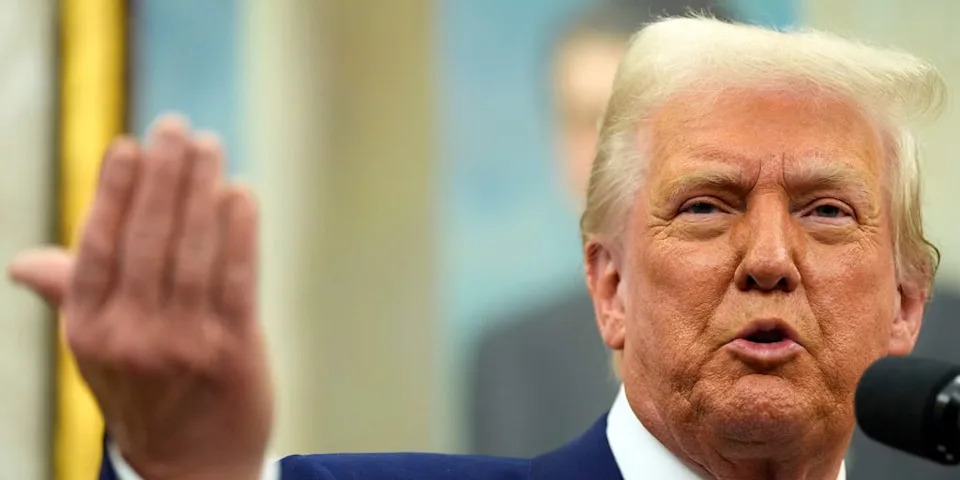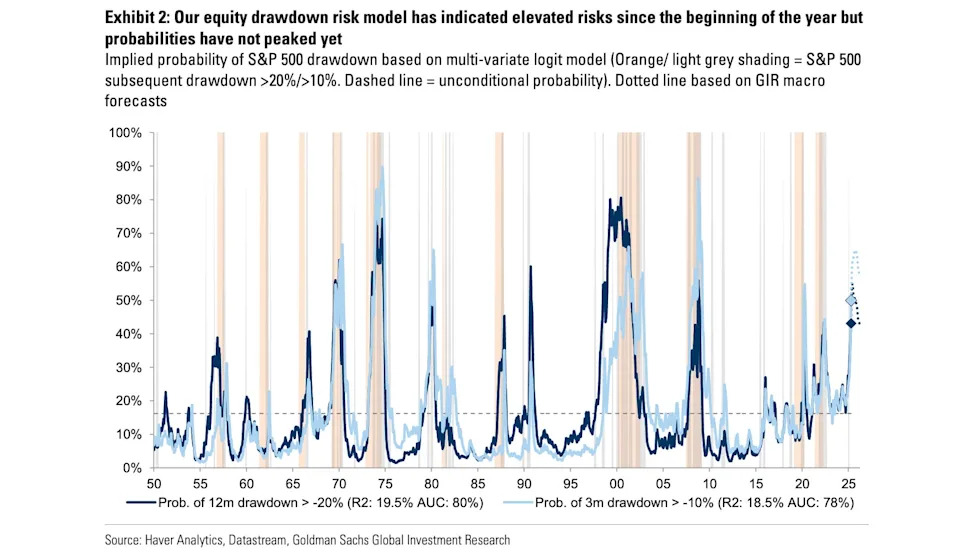Trump's tariff pause won't stop the stock market from falling, Goldman Sachs says

President Donald Trump's tariff pause probably isn't enough to stem a deeper correction in the stock market, Goldman Sachs said Thursday.
Already, stocks on Thursday were giving back a chunk of the gains recorded in Wednesday's historic session . Analysts at Goldman Sachs said they still saw an "elevated" risk that stocks would fall even further, even after the significant drawdown in the market in recent weeks and despite Trump dialing back most of his tariffs on Wednesday.
Goldman Sachs' equity drawdown risk model, which bases its probability of further market downside on a handful of indicators, recently spiked past 35% on both a three-month and a 12-month horizon. That's a strong signal that the S&P 500 is headed for further declines, the bank wrote in a note, adding that the model's downside risk had been elevated since January.

"Usually levels above 35% give a strong signal of downside risk to equities, and probabilities for both 3m and 12m are now above those levels, especially when applying our economists' bearish macro baseline," analysts wrote. "As we showed previously, historically, a higher equity drawdown probability has translated into lower forward returns for equities and the risk of deeper max drawdowns."
Analysts said several factors had raised the risk of more downside.
For one, leading growth indicators in the economy have declined. In particular, the bank pointed to the recent decline in manufacturing activity , with new orders and production measures contracting over the month of March, according to the Institute for Supply Management.
And recent market volatility has also hurt the outlook for stocks. The CBOE Volatility Index , also known as the stock market's fear gauge, has declined slightly since Trump first implemented reciprocal tariffs but remains elevated compared with levels at the start of the year.
Policy uncertainty also remains high. The US Economic Policy Uncertainty Index, one measure of unpredictability, spiked to a level of 689 on Wednesday, according to Federal Reserve data, down from a peak of 992 this month but still elevated on a historical basis.
Downside risk also looks like it hasn't yet peaked, Goldman said.
"Before a clear peak in the equity drawdown probabilities, risk of further corrections remains elevated in the near term. The size of the drawdown does not lower near-term drawdown risk," analysts said.
Goldman Sachs rescinded its recession forecast after Trump paused most reciprocal tariffs on Wednesday, but the bank still says there's a 45% chance the economy will tip into a downturn in the next year.
Previously, analysts said they saw the S&P 500 dropping as low as 4,600 in a full downturn scenario, which implies the index dropping another 13% from its levels on Thursday, or a 25% drop from its February record high.
Concerns around tariffs have weighed significantly on Wall Street's outlook in recent weeks. Goldman Sachs , Barclays , and RBC are among the big banks that have cut their forecast for stocks, citing the trade war as a major headwind for equity prices.
Read the original article on Business Insider

